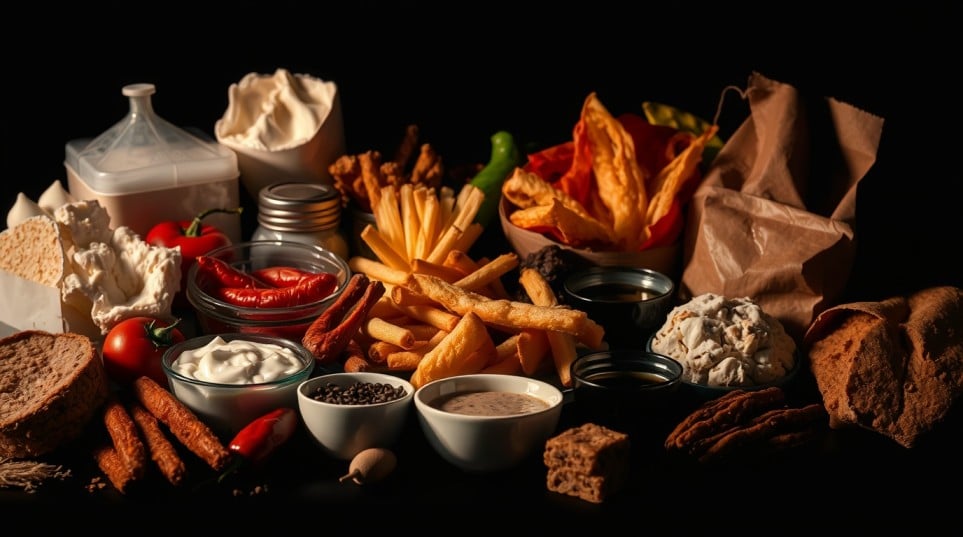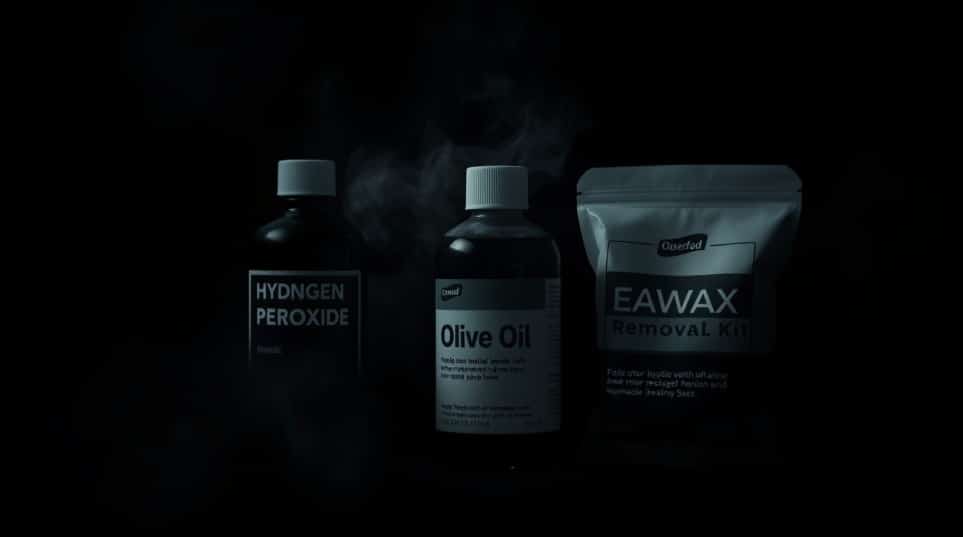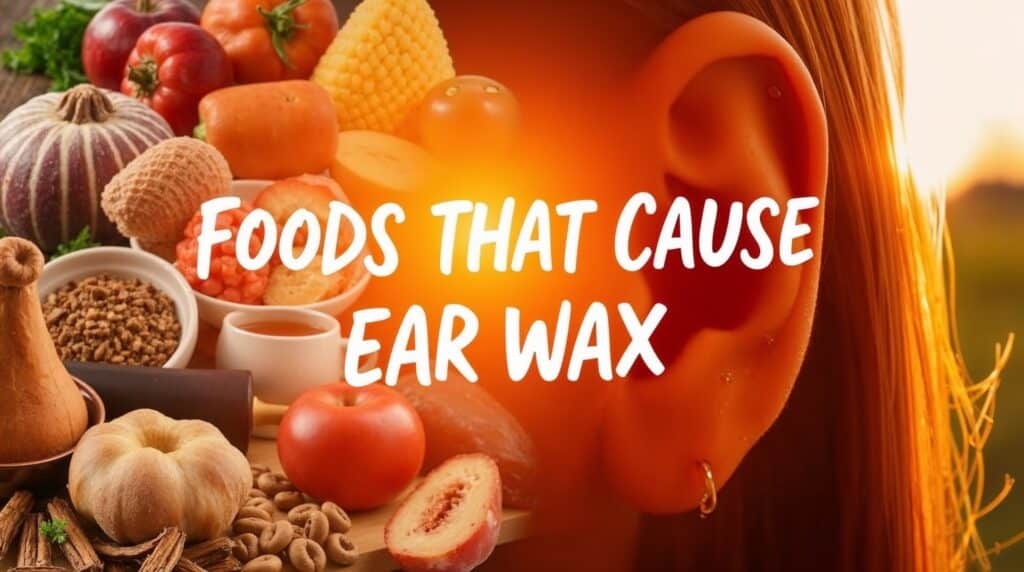Earwax, medically known as cerumen, protects the ear canal by trapping dust, dirt, and bacteria. However, excessive earwax buildup can lead to discomfort, hearing issues, and even infections. While earwax production is natural, certain foods and lifestyle factors may contribute to its overproduction. This article will explore the connection between diet and earwax, focusing on foods that cause ear wax and other related topics.
Understanding Earwax and Its Role
Before exploring the impact of foods that cause ear wax, it’s essential to understand the purpose of ear wax. Earwax acts as a natural barrier, preventing harmful substances from reaching the delicate eardrum. Additionally, it has antibacterial properties that help protect the ear canal from infections.
However, an imbalance in either too much or too little earwax production can cause problems. While genetics and hygiene practices play a role, diet is another factor influencing earwax production.
Foods That Cause Ear Wax

Certain foods that cause ear wax are known to increase their production by stimulating the body’s glands, including the ceruminous glands in the ear. These foods can produce excessive oil and wax, resulting in buildup. Here are some of the primary culprits:
1. Dairy Products
Dairy products like milk, cheese, and butter can stimulate the sebaceous glands, increasing earwax production. This is particularly true for individuals who are lactose intolerant or sensitive to dairy, as their bodies may respond with inflammation, which can exacerbate earwax issues.
2. Sugary Foods
High-sugar foods, including candies, cakes, and sugary drinks, can contribute to inflammation in the body. Excessive sugar intake has been linked to overactive sebaceous glands, which may increase earwax production.
3. Processed and Fried Foods
Foods high in unhealthy fats, such as chips, fried chicken, and processed snacks, can lead to excessive oil production in the body. This increased oiliness may affect the ceruminous glands, resulting in more earwax.
4. Spicy Foods
While spicy foods like chili peppers and hot sauces are delicious, they can stimulate the body’s mucous membranes and increase secretion activities, including earwax production in some individuals.
5. Caffeine
Caffeinated beverages such as coffee, tea, and energy drinks may not directly cause earwax but can dehydrate the body. Dehydration can lead to thicker earwax, making it harder to remove naturally.
6. Gluten-containing Foods
For people with gluten sensitivities or celiac disease, consuming gluten-rich foods like bread, pasta, and pastries can trigger inflammation in the body. This inflammation may extend to the ear canal, producing increased earwax.
Foods to Avoid With Clogged Ears
If you have clogged ears due to excessive earwax, it’s a good idea to avoid foods that cause ear wax buildup or worsen the condition. Making dietary adjustments can help manage and prevent further discomfort.
- Dairy products (milk, cheese, butter)
- Fried and oily foods
- High-sugar snacks and beverages
- Processed foods high in salt and preservatives
- Spicy foods
Cutting back on these foods may help reduce earwax buildup and alleviate clogged ears.
What Foods Help Reduce Ear Wax?
Just as some foods can contribute to earwax issues, others can help minimize wax production and keep your ears healthy. Here are some foods to include in your diet:
1. Fruits and Vegetables
Fruits and vegetables rich in vitamins A and C, such as carrots, spinach, oranges, and strawberries, promote healthy skin and gland function. This can help regulate earwax production.
2. Omega-3 Fatty Acids
Foods high in omega-3 fatty acids, like salmon, walnuts, and flaxseeds, reduce inflammation and improve overall skin health. They may also prevent excessive earwax production.
3. Nuts and Seeds
Almonds, sunflower seeds, and other nuts are rich in vitamin E, which supports healthy skin and glands, including those in the ear canal.
4. Hydrating Foods
Staying hydrated is essential for maintaining the right consistency of earwax. Include water-rich foods like cucumbers, watermelon, and celery in your diet.
5. Herbal Teas
Herbal teas such as chamomile and ginger tea can reduce inflammation and promote better gland function. They’re a great alternative to caffeinated drinks.
What Vitamin Deficiency Causes Ear Wax?

Vitamin deficiencies can also play a role in excessive earwax production. Key vitamins to watch include:
1. Vitamin A
Vitamin A is essential for maintaining healthy skin and gland function. A deficiency in this vitamin can lead to dry, flaky skin and irregular gland activity, potentially causing more earwax.
2. Vitamin D
Vitamin D deficiency has been linked to various skin issues, including increased oil production. This can contribute to excessive earwax in some individuals.
3. Vitamin E
As a powerful antioxidant, vitamin E supports healthy skin and glands. A lack of vitamin E may result in abnormal gland activity, including in the ceruminous glands.
How to Address Vitamin Deficiency
To combat these deficiencies, incorporate foods like carrots, sweet potatoes, fatty fish, eggs, and nuts into your diet. Vitamin supplements may also be helpful but should be taken under medical guidance.
What Causes Too Much Wax in the Ears?
Excessive earwax can result from several factors, including:
- Overactive Glands: Some people naturally produce more earwax due to genetics.
- Diet: As discussed, certain foods can stimulate wax production.
- Hygiene Practices: Over-cleaning the ears with cotton swabs can push wax deeper into the canal, causing buildup.
- Allergies or Infections: These can lead to inflammation and increased earwax production.
- Environmental Factors: Dusty or polluted environments may cause the body to produce more earwax as a protective mechanism.
What Kills Earwax?

While earwax naturally falls out on its own, excessive buildup may require intervention. Here are safe methods to remove earwax:
1. Hydrogen Peroxide
A few drops of hydrogen peroxide can help soften earwax, making removing it easier.
2. Olive Oil or Coconut Oil
These oils can also soften earwax and facilitate its natural removal.
3. Earwax Removal Kits
Over-the-counter earwax removal kits can help flush out excess wax safely.
4. Professional Cleaning
If earwax buildup is severe, consult a healthcare professional for safe removal.
Important Note: Avoid using cotton swabs, which can push wax deeper into the ear canal and cause damage.
What Foods Are Good for Clogged Ears?
If your ears feel clogged due to wax or other factors, certain foods may help alleviate the problem. These include:
- Ginger: Known for its anti-inflammatory properties, ginger can reduce swelling in the ear canal.
- Garlic: Garlic has antimicrobial properties that can prevent infections.
- Leafy Greens: Spinach and kale are rich in vitamins and minerals that promote healthy ear function.
- Turmeric: The anti-inflammatory properties of turmeric can help reduce ear canal swelling.
Practical Tips for Managing Earwax Through Diet
- Balance Your Diet: Focus on whole, unprocessed foods rich in essential vitamins and nutrients.
- Stay Hydrated: Drink plenty of water to keep earwax from becoming too thick.
- Limit Inflammatory Foods: Reduce your intake of processed, fried, and sugary foods.
- Incorporate Anti-Inflammatory Foods: Add ginger, turmeric, and omega-3-rich foods to your meals.
- Monitor Food Sensitivities: If you notice a link between certain foods and earwax issues, consider an elimination diet to identify triggers.
Conclusion
While earwax is essential for ear health, excessive buildup can cause discomfort and other issues. By understanding the role of diet in earwax production, you can make informed choices to prevent overproduction and maintain healthy ears. Avoid foods that cause ear wax, like dairy and sugary snacks, and incorporate nutrient-rich, anti-inflammatory foods into your diet for better ear health. If you experience persistent earwax issues, consult a healthcare professional for personalized advice.










